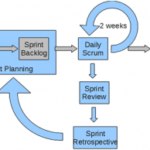Introduction to SEO (search engine optimization) :
This article is intended for webmasters and site owners who want to investigate the issues of seo (search engine optimization) and promotion of their resources. It is mainly aimed at beginners, although I hope that experienced webmasters will also find something new and interesting here. There are many articles on seo on the Internet and this text is an attempt to gather some of this information into a single consistent document.
Information presented in this text can be divided into several parts:
- Clear-cut seo recommendations, practical guidelines.
- Theoretical information that we think any seo specialist should know.
- Seo tips, observations, recommendations from experience, other seo sources, etc.
Steps for SEO:
- Title should be different for all pages and not more than 150 letters.
- Every page you should have meta tags and meta description.
- Every image should have alt tag for seo purpose.
- Url masking’s should be taken i.e you should write htacess for your pages.
- Don’t use the iframes in your pages.(google cann’t index that part)
- The page size is recommend 100 kb.
- You should have external linking in your pages.
- You should have internal linking in your pages.
- Proper navigations should have all your pages.
- Broken url should n’t have in your pages.
- You should have google indexing for your pages.
- You should have site map for your site.
- If there are not too many pages on your site (up to a couple of dozen), it is best to place them all in the root directory of your site. Search engines consider such pages to be more important than ones in subdirectories.
- You should not have the grammatical mistakes in your text.
- You should have the robot.txt file in your folder.
- Use proper fonts to your text in all your pages.
- Proper html closing in your pages.
- The general seo rule is: the more, the better. Increasing the number of pages on your website increases the visibility of the site to search engines. Also, if new information is being constantly added to the site, search engines consider this as development and expansion of the site. This may give additional advantages in ranking. You should periodically publish more information on your site – news, press releases, articles, useful tips, etc.
- Redirects make site analysis more difficult for search robots, with resulting adverse effects on seo. Do not use redirects unless there is a clear reason for doing so.
- Should not have any html and css errors in your pages








1 Comment
sandeep reddy
April 3, 2015very good article.